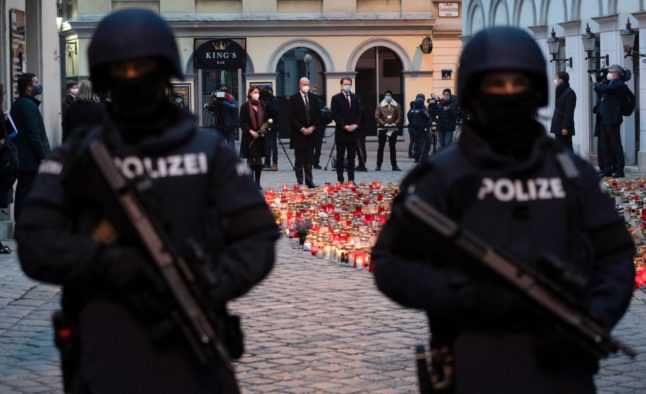The Sunni militant group known as the Islamic State in Iraq and the Levant (Isis), proclaimed an Islamic caliphate in June this year, with supporters of the radical Islamists swearing their loyalty to Caliph Abu Bakr al-Baghdadi.
Among them was a 19-year-old from Austria. The Viennese man with Tunisian roots was present when Isis fighters annihilated a mosque belonging to extremist Shiites.
"Everything that indicates the existence of Shiites here in the Islamic State will be destroyed," he says in a video in German.
Even as a 16-year-old, the young man was involved in a controversial Koran-distribution campaign in Vienna.
He was also involved in protests against a film which allegedly insulted the Prophet Muhammad, held outside the US Embassy in Vienna in September 2012.
Sometime in the past few months he joined the jihad in Syria and now lives in the newly established Islamic state where he provides its supporters with news and videos.
The 19-year-old is not alone in his mission.
More than 100 people have now travelled from Austria to Syria. Approximately half have a Chechen background, but there are also young people with Bosnian, Kurdish and Turkish roots.
Motivations for young Austrians to join the jihad are varied. Some are self-radicalised, while others are known to have been swayed by a third party.
According to Der Standard, the 19-year-old in Raqqa was heavily influenced by an anti-Western mullah who preaches in a small mosque in Vienna's second district.
He is not the only one to have been inspired by this mullah. Last year, a young Austrian of Kurdish origin who attended the mosque near Vienna's Prater, died while fighting for a radical Islamic group in Aleppo.
In Austria, membership of a terrorist organisation is prosecutable under Section 278, and if known jihadists return to Austria, they will be interrogated.
However authorities recognise the difficulties in preventing potential jihadists from exiting the country, as very few make their intentions public.
In France, the growing number of jihadists wishing to leave has led Interior Minister Bernard Cazeneuve to consider plans to stop prospective combatants from travelling to Turkey or Syria.
Germany too is strengthening its exit requirements, while in Austria, plans are under way to tighten citizenship laws.
"A citizen who actively and voluntarily participates in hostilities abroad as part of an armed conflict will have their citizenship withdrawn, as long as he will not become stateless," a statement from the Interior Ministry said.
According to Hermann Muhr, spokesman for Interior Minister Johanna Mikl-Leitner (ÖVP), the proposal is now before the SPÖ, with hopes it will be passed "this year".
Following the flight of two teenage girls (aged 15 and 16) from Vienna, plans are also under way for another law designed to prevent the departure of vulnerable minors without parental consent.
In future, public security officials will be permitted to refuse to allow minors to cross borders, and even withhold travel documents should there be doubt as to parental approval.
Currently a 14-year-old can book flights, and most airlines will accept unaccompanied minors.



 Please whitelist us to continue reading.
Please whitelist us to continue reading.
Member comments